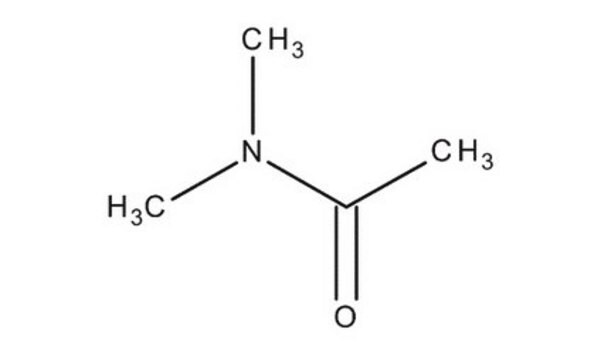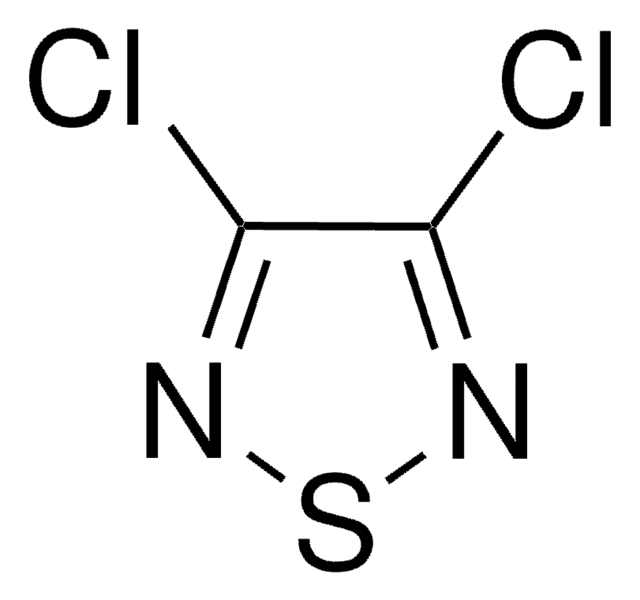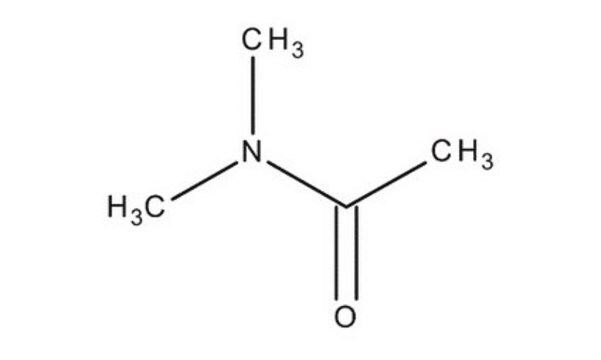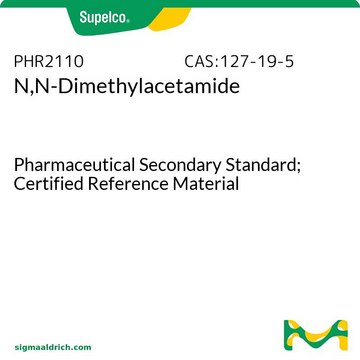271012
N,N-Dimethylacetamide
anhydrous, 99.8%
Synonym(s):
DMAc
About This Item
4 mmHg ( 38 °C)
Recommended Products
grade
anhydrous
Quality Level
vapor density
3 (vs air)
vapor pressure
2 mmHg ( 25 °C)
4 mmHg ( 38 °C)
Assay
99.8%
form
liquid
autoignition temp.
914 °F
expl. lim.
1.8 %, 100 °F
11.5 %, 160 °F
impurities
<0.005% water
evapn. residue
<0.001%
refractive index
n20/D 1.437 (lit.)
pH
4 (20 °C, 200 g/L)
bp
164.5-166 °C (lit.)
mp
−20 °C (lit.)
density
0.937 g/mL at 25 °C (lit.)
SMILES string
CN(C)C(C)=O
InChI
1S/C4H9NO/c1-4(6)5(2)3/h1-3H3
InChI key
FXHOOIRPVKKKFG-UHFFFAOYSA-N
Looking for similar products? Visit Product Comparison Guide
Application
- Palladium (II) acetate-butyldi-1-adamantylphosphine catalyzed arylation of 2-isobutylthiazole with chlorobenzene to form 5-phenyl-2-isobutylthiazole.
- Synthesis of β-, γ-, and δ-metallo ester intermediates that can react with acid chlorides to form γ-, δ-, and ε-keto esters.
- Synthesis of (R)-(-)-methyl 1,1′-binaphthyl-2,2′-diylphosphate that can be used as a precursor for preparing (R)-(+)-1,1′-binaphthalene-2,2′-diol.
Packaging
Other Notes
related product
Signal Word
Danger
Hazard Statements
Precautionary Statements
Hazard Classifications
Acute Tox. 4 Dermal - Acute Tox. 4 Inhalation - Eye Irrit. 2 - Repr. 1B
Storage Class Code
6.1C - Combustible acute toxic Cat.3 / toxic compounds or compounds which causing chronic effects
WGK
WGK 2
Flash Point(F)
147.2 °F - closed cup
Flash Point(C)
64 °C - closed cup
Personal Protective Equipment
Choose from one of the most recent versions:
Certificates of Analysis (COA)
Don't see the Right Version?
If you require a particular version, you can look up a specific certificate by the Lot or Batch number.
Already Own This Product?
Find documentation for the products that you have recently purchased in the Document Library.
Customers Also Viewed
Articles
All of the preformed catalysts used in the kit are air and moisture stable complexes in their commercially available form. Once activated by base under the reaction conditions they become sensitive to air. To best enable scale-up success, the use of standard Schlenk technique is recommended.
All of the preformed catalysts used in the kit are air and moisture stable complexes in their commercially available form. Once activated by base under the reaction conditions they become sensitive to air. To best enable scale-up success, the use of standard Schlenk technique is recommended.
Our team of scientists has experience in all areas of research including Life Science, Material Science, Chemical Synthesis, Chromatography, Analytical and many others.
Contact Technical Service









